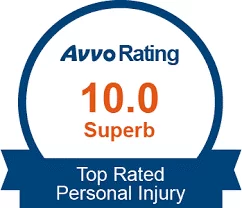Being in an accident is an overwhelming experience. So many things occur in a fraction of a second, it is impossible for any person who has been a party in the accident to consciously collect their thoughts and take the right steps expected from them. Moreover, the at-fault driver’s insurance is bound to do something to clear his fault, sabotage your claim, show some injury or even try to escape the scene of the accident to evade a lawsuit and potential payout.
While these are all tedious scenarios, nothing can prepare you for the ultimate logjam situation; the at-fault drivers insurance refusing to pay up for your losses!
Your claim is denied. How could this happen?
The first thing you need to know about insurance companies, specifically the one denying your claim is that they are not your friend. They only thing they care about and the only thing that motivates them is PROFIT. It is, therefore, in their interest to subject you to the 3Ds of insurance payout – Deny, Delay and Defend. So denial is only the first step in what may end up becoming a long drawn battle. You need to be monetarily, and mentally ready for this.
Coming to how; there are plenty of reasons an insurer may state to deny your claim, even if your statements about the events may be factually correct. Most reasons fall in one of the two buckets below;
- The claims adjuster believes your claim lacks merit
- The insurer hopes you won’t pursue the case for a long while
There may be a third scenario where an eye-witness offers evidence offering an opposing version of the event, which makes them believe they have chances of beating you in court.
Other reasons they may be contesting your claim could have more technical standing;
- Policy exclusion – Many insurance contracts exclude damage caused due to natural calamities as ‘Act of God’. If your insurer thinks and can prove the incident occurred due to a hailstorm or an earthquake and not due to their client’s negligence, they have a right to deny your claim
- Policy lapse – This again amounts to the at-fault driver not having paid their premiums leading to a lapse in the policy. In such a situation, your UMI should kick in, to pay for whatever percentage of losses possible.
- Failure to notify in time – this again may be a result of the chaos that ensues after an accident. The at-fault party, though completely accepting of their guilt, is needed to inform their insurer of it’s fault, only after which the insurer will reach out to estimate your losses and consider compensation. Failure to report within a stipulated time can also be ground for the company to deny your claim.
What should I do after my insurance claim is denied?
One must do everything one can to avoid a denial of a case, though it is not uncommon for insurance companies to dismiss the case on any of the above reasons. While in general, it is good to have an experienced lawyer around, their contribution is undeniable in such situations. So what options do you have?
1. Draft a Demand Letter
With your lawyer’s help, draft a demand letter to the at-fault drivers insurance company, stating facts and asking for due process. Your letter should contain all the specifics of the case, all additional information like police reports, eyewitness testimonies, photographs, medical bills and reports, and most importantly a sensible compensation figure.
As a response, the insurer will possibly feel compelled to share the exact reason for their denial of your claim, if not reverse their decision. This should be enough for you to plan the next steps with your lawyer.
2. Send out an Additional Claim
If you or your lawyers feel that the company may be indulging in an improper claims settlement practice, you can file a second claim, depending on the state laws, which you certainly can do in Georgia.
3. Make a Formal Appeal
Georgia allows you to make a formal appeal on a verdict they have given. An internal appeal can be filed through the insurer’s internal procedure for a review, whereas an external appeal can be filed with the Georgia Department of Insurance (DOI).
However far you choose to go, it is advised to get legal help for your insurance claim. Car accidents are unpleasant irrespective of the scale of injuries, and you deserve to focus on your healing and wellbeing of your loved ones. But a claim denial is absolutely a blow to your healing. If you’re in such a situation and need help to plan your course forward, reach out to attorney Riah Greathouse for help. We’ll be happy to analyze your situation, explain your options, and find the solution that is right for you.


